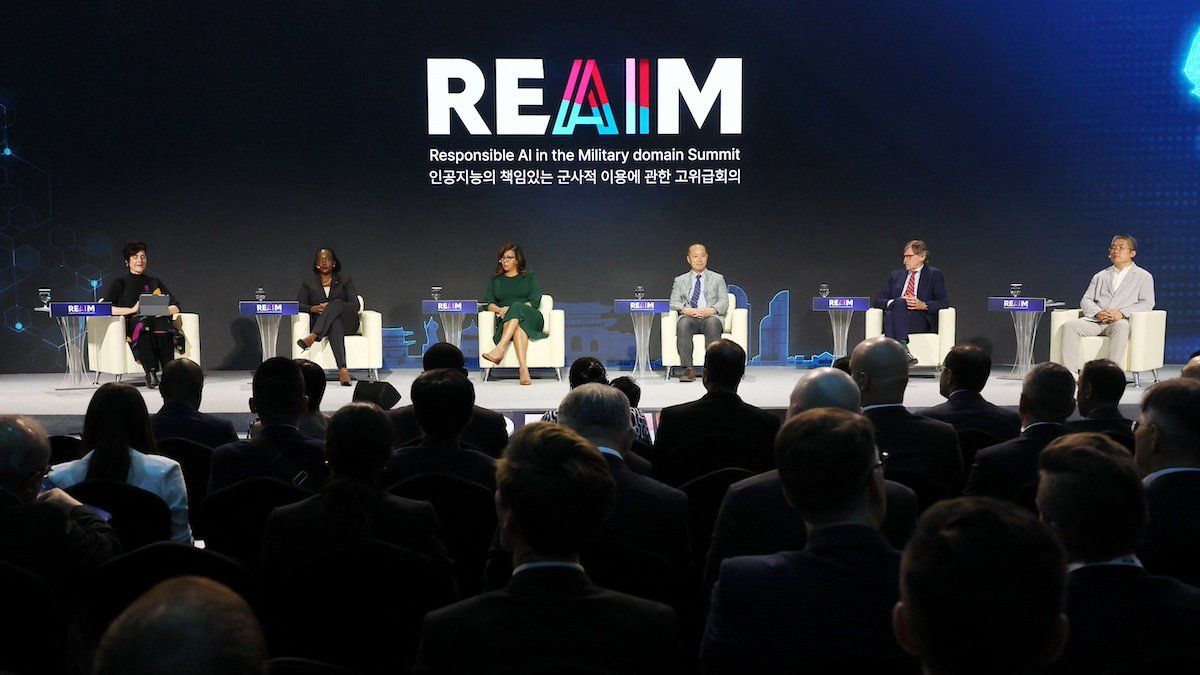Today, global delegates to the Responsible AI in the Military Domain Summit in Seoul adopted a non-binding agreement promising to keep nuclear weapons solely in human control — and not under the control of artificial intelligence.
60 of the 100 countries in attendance adopted the “blueprint for action,” a pledge to “maintain human control and involvement for all actions … concerning nuclear weapons employment.”
Notably, China did not sign the agreement. The White House previously disclosed that China has refused to commit to limiting the decision-making around nukes to humans. “Our position has been publicly clear for a long time: We don’t think that autonomous systems should be getting near any decision to launch a nuclear weapon. That’s a long-stated U.S. policy, said US National Security Council Director of Technology Tarun Chhabra earlier this summer. “We think all countries around the world should sign up to that.” (Russia was not invited to the summit due to its invasion of Ukraine.)
Experts previously told
GZERO AI that China has signaled to the UN that nuclear weapons should never be used in war and that powerful weapons systems should stay under human control, but Beijing has shied away from official and direct pronouncements on the matter.
